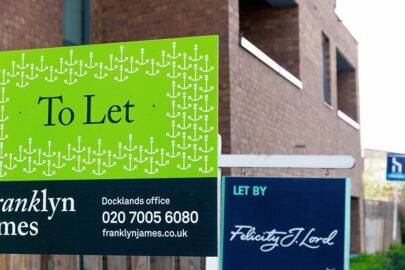In an uncertain world, it’s difficult to get any sort of handle on how the future might play out, particularly in the buy-to-let space and especially if you’re a landlord.
As the recent IMLA report on the buy-to-let market and private rental sector (PRS) outlines, this is a sector which has been subject to considerable government and regulatory intervention over the past five years, resulting in some significant changes.
While its positive to see the number of portfolio landlords rising – 17% now own five or more properties – it’s apparent that this has come at the cost of the more ‘amateur landlord’. Those who own just one property have fallen in number considerably, down 33% over the last eight years, and it’s perhaps a sign of how difficult it is to run just one profitable buy-to-let property.
IMLA has used this report to call for a moratorium on any more intervention in the market, and I think there would be few stakeholders who would not agree with such sentiments. Whether we get that pause however is up for debate, especially when the UK housing market is a well-known political football, and politicians especially appear to believe there is plenty of political capital to made by going after landlords, buy-to-let and the PRS in particular.
The recent Labour Party-commissioned report on housing showed this in full effect with plenty of proposals designed to curb buy-to-let lending, to curb investment, and with a measure such as rental price caps, probably designed to bring the whole sector to a juddering halt.
As we await to find out who will be the next Conservative Leader and our next Prime Minister, it’s difficult to gauge how either Boris Johnson or Jeremy Hunt might look upon the PRS. Johnson has already talked about stamp duty cuts on the residential side but would he be willing to countenance such a move on the extra charge required when purchasing an additional property?
We’re all acutely aware of how this has severely dented the buy-to-let purchase market since its introduction, and there’s no doubting that any sort of u-turn in this area would act as a considerable catalyst. However, I will not be holding my breath on this one, given Johnson is unlikely to think that supporting landlords is a political hill worth dying on, especially in the early days of his Premiership.
It’s therefore unlikely that Johnson or Hunt would be willing to ‘go there’ for the buy-to-let sector, certainly not in the short-term, and there’s plenty of water to flow under the bridge just this year, which might ensure all bets are off anyway. What price a General Election in 2019? Especially if either decides to pursue a No Deal Brexit – we are told there are plenty of Tory MPs willing to bring down their own government in order to ensure this doesn’t happen. This could be an extremely short-lived PM, whoever walks through the door into Number 10 later this month.
While all this goes on, the likelihood is that there will be no major regulatory or political changes to the buy-to-let market, and that’s perhaps the best we can hope for. No-one would be more delighted than me to have a Prime Minister in situ that recognises landlords are not evil incarnate, and that they are actually required in greater numbers if we are to fulfil the housing needs of this country. The problem is what sort of political support is there for such a position? In a hung Parliament with bigger political fish to fry? It’s not really likely is it?
So, as the old saying goes, we in the sector may just have to ‘make do and mend’ when it comes to the political view of us. The good news however is that we have an ultra-competitive buy-to-let sector, active lenders who want to lend, specialist operators who understand the needs of a more complex borrower group, and also a demand amongst professional landlords that can’t be easily regulated away. Plus, of course, we have quality advice from many, many firms to deal with client needs.
From that perspective, the sector is in good shape and should remain so for some time. The political future can’t be known, but we can carry on regardless, and hope that eventually the policymakers’ ambition and understanding matches our own.
Bob Young is chief executive officer of Fleet Mortgages
